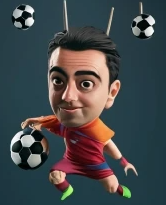
In football, the result is an impostor. You can do things really, really well but not win. There’s something greater than the result, more lasting – a legacy.
Xavi, The Puppet Master
Our legacy
0:16, only one random goal-kick for our team.
Two months before that, I took over a team of 9-year-old boys and that was the result we achieved in our third game of the season. The previous two games were just marginally better. The players are crying on the way home, the parents are disappointed, and fellow coaches tell me that there is no talent on the team. Parents wanted us to drop out of the league and stop playing, while coaches wanted to close the team and spend time recruiting from scratch, and I am doubting if I know anything about soccer coaching (or the world).
The return of the rondos
Half a year later, I was with the exact same players, but we are winning games. The players are giving everything they have, parents are over the moon, and coaches tell me that losing earlier was key to getting the trust of the others. But I know this is only the start. I was young and inexperienced back then and all I had was the belief in the development process. I have heard similar stories of inexperienced coaches that took the advice to stop trying. They will never experience the later part of the story. This is a place for them – to show them the journey and to share the tools that get the delight of seeing young kids develop into extraordinary players through methodological, consistent, and hard work. We will look at how to become a coach, how to recruit, how to choose an assistant coach and many other important questions. But first, let’s talk about rondo.
